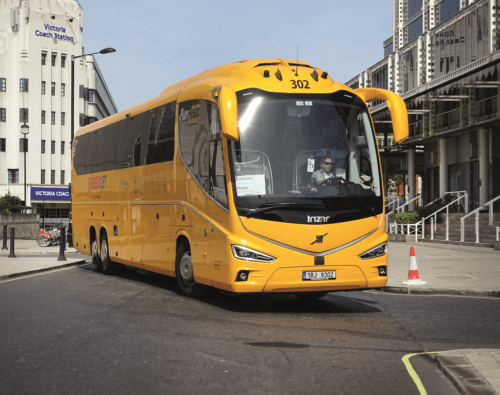
Coach travel is well known to be the best way to get around. It’s cheap, comfortable and reliable, but there may just be more connections than many people are aware of. Richard Sharman investigates the recent history of UK to Europe express coach travel, and compares the current offerings
Domestic express coach travel is big business. National Express, megabus, Citylink and FlixBus are all well known brands that offer value for money fares to an ever growing number of destinations in England, Scotland and Wales. But, for those wanting to travel beyond the United Kingdom’s borders, there have been some other interesting options available for a long time.
Eurolines sets the trend
For many decades, the market leader and household name in European coach travel to and from the UK was Eurolines, an organisation that was formed in 1985 by a consortium of coach operators to provide long distance coach services under one brand. The UK arm of the consortium was formed in February 1986 by National Express, although originally named Supabus, prior to being renamed Eurolines (UK) Limited in August 1989.
The white coaches with prominent blue and red Eurolines branding could be seen throughout the UK, and the livery adorned many independent operators’ coaches from the UK over the years.
For some operators, they might have only operated their livered coach to Europe on a weekend, meaning that those vehicles often acted as prominent mobile advertising boards whilst they were used on other work such as private hires, rail replacement (pre-PSVAR era!) and school services. The same could also be said for the European operators involved, as they were in the same situation, and many weird and wonderful types of coaches could be seen in the UK transporting tourists with the full livery applied, or simply carrying Eurolines branding on their owner’s livery.
The 1990s to 2000s period seemed to be the two decades when Eurolines vehicles were most frequently seen in the UK, and passengers also had the ability to book through tickets on National Express to connect with Eurolines services. However, European coach travel was about to get a shake up.
[…]By subscribing you will benefit from:
- Operator & Supplier Profiles
- Face-to-Face Interviews
- Lastest News
- Test Drives and Reviews
- Legal Updates
- Route Focus
- Industry Insider Opinions
- Passenger Perspective
- Vehicle Launches
- and much more!


